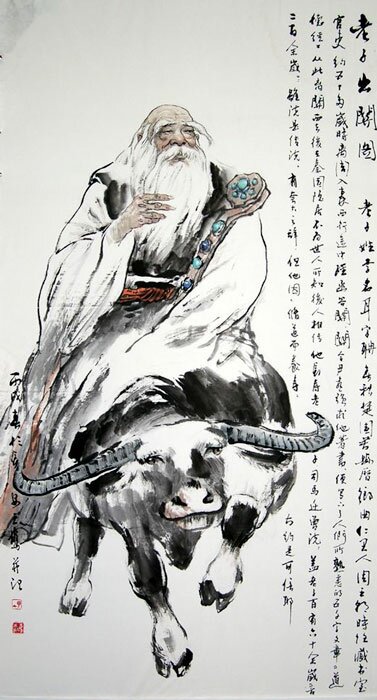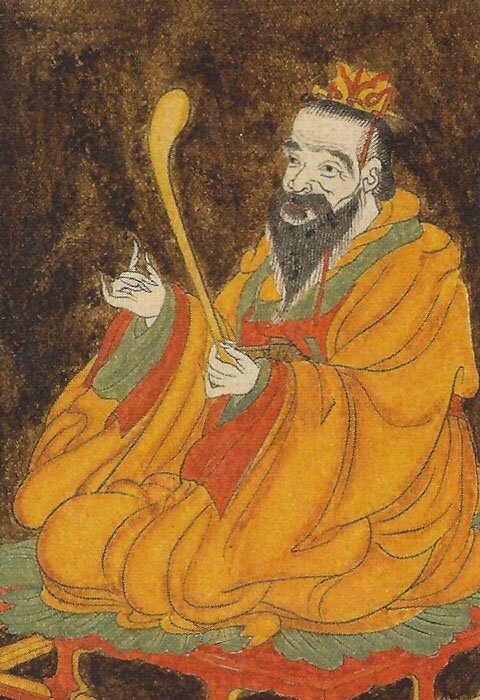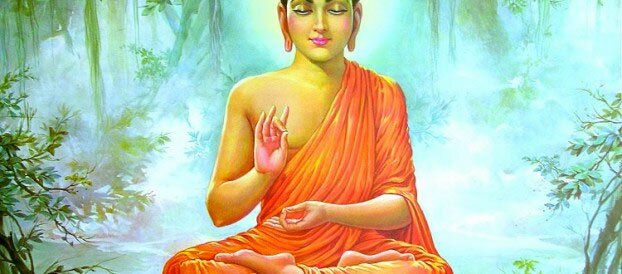1. Laozi
Laozi is to be traditionally considered the founder of philosophical Taoism (pronounced as “Daoism”).
He is also revered as a deity in most religious forms of Taoist philosophy, which often refers to Laozi as Taishang Laojun, or “One of theThree Pure Ones“.
According to Chinese traditions, Laozi lived in the 6th century BC. Some historians contend that he actually lived in the 5th–4th century BC, concurrent with the Hundred Schools of Thought andWarring States period.
A central figure in Chinese culture, both nobility and common people claim Laozi in their lineage. He was honored as an ancestor of theTang imperial family, and was granted the title Táishāng xuānyuán huángdì, meaning “Supreme Mysterious and Primordial Emperor”. Throughout history, Laozi’s work has been embraced by variousanti-authoritarian movements.
Via: Wikipedia
Lao Tzu was the most important spiritual Chinese sage. His name, which is also often called Laozi, literally means “Old Master” and is generally considered an honorific.
(Image Via: )
2. Confucius
His followers competed successfully with many other schools during the Hundred Schools of Thought era only to be suppressed in favor of the Legalists during the Qin Dynasty. Following the victory of Han over Chu after the collapse of Qin, Confucius’s thoughts received official sanction and were further developed into a system known as Confucianism.
Confucius is traditionally credited with having authored or edited many of the Chinese classic texts including all of the Five Classics, but modern scholars are cautious of attributing specific assertions to Confucius himself. Aphorisms concerning his teachings were compiled in the Analects, but only many years after his death.
Confucius’s principles had a basis in common Chinese tradition and belief. He championed strong family loyalty, ancestor worship, respect of elders by their children and (in traditional interpretations) of husbands by their wives. He also recommended family as a basis for ideal government. He espoused the well-known principle “Do not do to others what you do not want done to yourself”, an early version of the Golden Rule
Via: Wikipedia
(Image Via: )
3. Siddartha Ghatima
Gautama Buddha, also known as Siddhārtha Gautama, Shakyamuni, or simply the Buddha, was a sage on whose teachings Buddhism was founded.
A native of the ancient Shakya republic in the Himalayan foothills,[4][note 3]Gautama Buddha taught primarily in northeastern India.
Buddha means “awakened one” or “the enlightened one.” “Buddha” is also used as a title for the first awakened being in anera. In most Buddhist traditions, Siddhartha Gautama is regarded as the Supreme Buddha (Pali sammāsambuddha, Sanskritsamyaksaṃbuddha) of our age.
Gautama taught a Middle Way between sensual indulgence and the severe asceticism found in the Sramana (renunciation) movement common in his region. He later taught throughout regions of eastern India such as Magadha and Kośala.
Gautama is the primary figure in Buddhism, and accounts of his life, discourses, and monastic rules are believed by Buddhists to have been summarized after his death and memorized by his followers. Various collections of teachings attributed to him were passed down by oral tradition, and first committed to writing about 400 years later.
Via: Wikipedia
(Image Via: http://imbihari.com/siddhartha-gautama-buddha/)
Comments
comments




